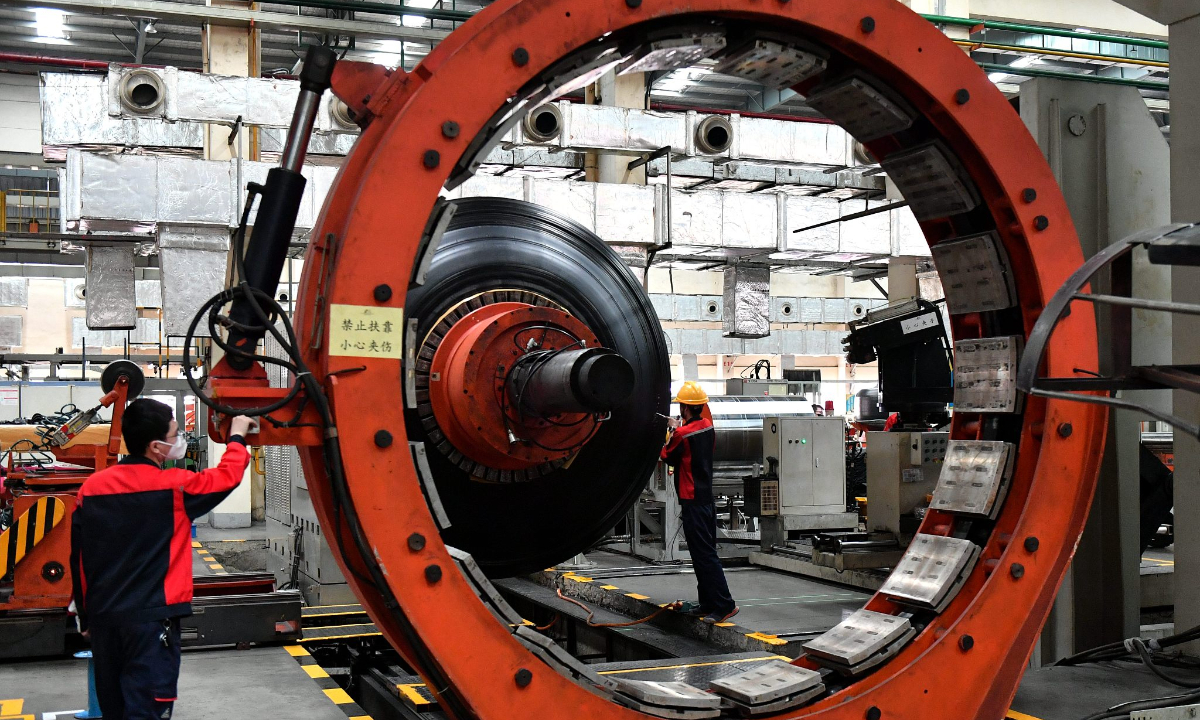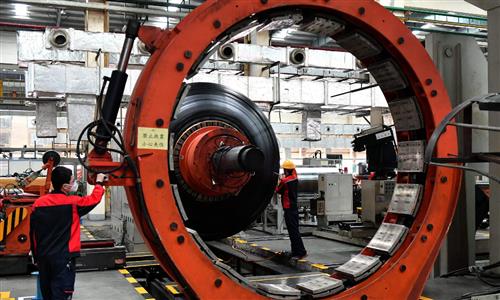China Caixin manufacturing PMI rises to 51.5 in November, hitting highest level in 5 months

PMI Photo:VCG
The Caixin China General Manufacturing Purchasing Managers' Index (PMI) reached 51.5 in November, up 1.2 points from the previous month, marking a second straight month of manufacturing expansion and the highest level since July, according to data released on Monday.
A reading above 50 indicates an expansion in manufacturing activity, while a number below that reflects a contraction.
"The improvement in the PMI shows that supply and demand in manufacturing increased in November, with a rebound in optimism. China's economic recovery accelerated in November as the government's incremental policy package since September has taken effect," Wang Zhe, a senior economist with Caixin Insight Group, wrote in a note.
In November, the Caixin PMI's sub-index of manufacturing production reached its highest level since July 2024 in expansion territory, while the new orders sub-index, also in expansion territory, rose to its highest level since March 2023. Surveyed companies reported that the improvements in demand fundamentals and the launch of new products have supported the growth of market orders.
External market demand has also revived, with the new export orders index rebounding significantly in November to surpass the expansion-contraction line, reaching a nearly seven-month high, according to Caixin.
The Caixin survey showed that market sentiment across Chinese manufacturing enterprises improved in November, as the index measuring expectations for manufacturing production and operations rose to an eight-month high in November.
The surveyed enterprises are pinning their hopes on better economic conditions under the support of government policies to back up their sales in the year ahead.
"Since late September, the synergy of existing pro-growth policies and the newly released incremental financial policy package has constantly spurred market demand, which is reflected in the improved economic performance in November," Wang said.
The Caixin reading was released following China's official manufacturing PMI, which was published by the National Bureau of Statistics (NBS) on Saturday. The NBS PMI came in at 50.3 in November, up from 50.1 in October.
The moderate acceleration in the expansion of manufacturing in November reflects improvements in both order demand and supply dynamics, as well as stronger business confidence, said Zhao Qinghe, a senior NBS statistician.
The Caixin survey tends to feature more small- and medium-sized enterprises (SMEs) compared with the PMI from the NBS, which traces a wider range of enterprises.
It is anticipated that the positive impact of domestic circulation will further extend from larger enterprises to SMEs as the incremental policies are further released and implemented, leading to improved business sentiment across different sectors, Wu Chaoming, a deputy head of the Chasing Research Institute, told the Global Times on Monday.
The recent rise in both the Caixin and NBS manufacturing PMI readings demonstrates the positive effect of these incremental policies, which have instilled confidence in the market and improved expectations, Cong Yi, a professor at the Tianjin School of Administration, told the Global Times on Monday.
"As China enters the fourth quarter, sustained growth in these economic indicators demonstrates that a solid foundation has been established for achieving China's annual targets in terms of production," Cong noted.



